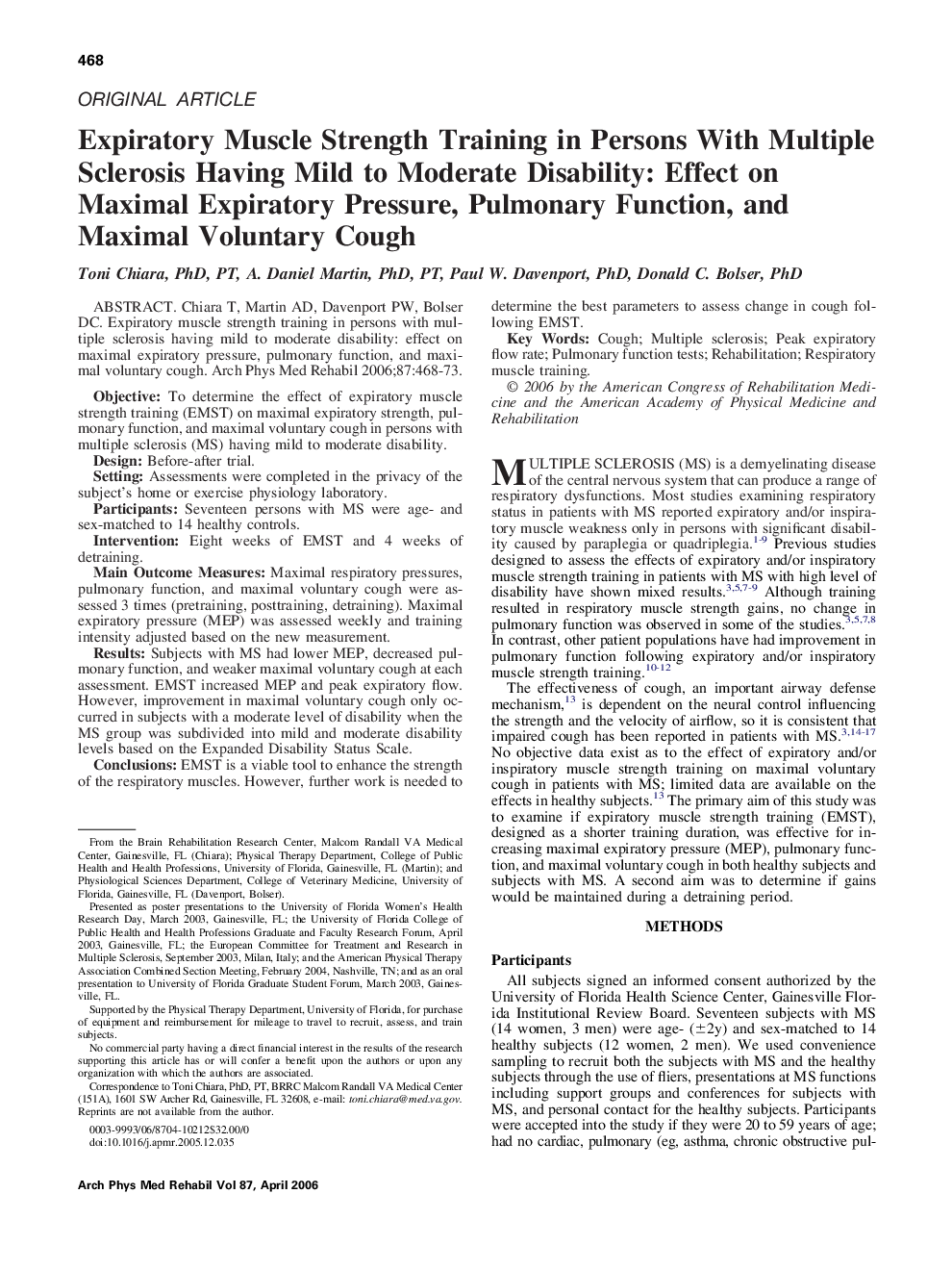| Article ID | Journal | Published Year | Pages | File Type |
|---|---|---|---|---|
| 3453222 | Archives of Physical Medicine and Rehabilitation | 2006 | 6 Pages |
Chiara T, Martin AD, Davenport PW, Bolser DC. Expiratory muscle strength training in persons with multiple sclerosis having mild to moderate disability: effect on maximal expiratory pressure, pulmonary function, and maximal voluntary cough.ObjectiveTo determine the effect of expiratory muscle strength training (EMST) on maximal expiratory strength, pulmonary function, and maximal voluntary cough in persons with multiple sclerosis (MS) having mild to moderate disability.DesignBefore-after trial.SettingAssessments were completed in the privacy of the subject’s home or exercise physiology laboratory.ParticipantsSeventeen persons with MS were age- and sex-matched to 14 healthy controls.InterventionEight weeks of EMST and 4 weeks of detraining.Main Outcome MeasuresMaximal respiratory pressures, pulmonary function, and maximal voluntary cough were assessed 3 times (pretraining, posttraining, detraining). Maximal expiratory pressure (MEP) was assessed weekly and training intensity adjusted based on the new measurement.ResultsSubjects with MS had lower MEP, decreased pulmonary function, and weaker maximal voluntary cough at each assessment. EMST increased MEP and peak expiratory flow. However, improvement in maximal voluntary cough only occurred in subjects with a moderate level of disability when the MS group was subdivided into mild and moderate disability levels based on the Expanded Disability Status Scale.ConclusionsEMST is a viable tool to enhance the strength of the respiratory muscles. However, further work is needed to determine the best parameters to assess change in cough following EMST.
